Every war is a tragedy; most wars are also a mistake. But wars do have results. Some nations prevail, some nations fail. Some are dismembered, never to recover. Some ideologies – such as Nazism in World War II – are defeated forever.
The Ukraine outcome will be fateful for the entire world.
The tanks themselves will not be decisive. Ukraine will get 31 US Abrams tanks, absolute behemoths which chew jet fuel at a prodigious rate and are extremely difficult to operate. Germany will start by giving 14 Leopard tanks, easier to operate and more powerful than anything the Russians are now using.
There are more than 2000 Leopard tanks across Europe. Britain has promised Challenger tanks. Berlin has authorised nations which have bought Leopards to donate them to Ukraine, which could realistically get 100 new tanks.
Much of Ukraine, especially in the east, is flat, open territory. Ukraine has long land borders with hostile powers Russia and Belarus. Tanks are relevant, whereas they are worthless to Australia and our maritime security challenges.
Canberra should donate our 60-odd Abrams tanks to Ukraine, saving us a heap of money and putting them to some use.
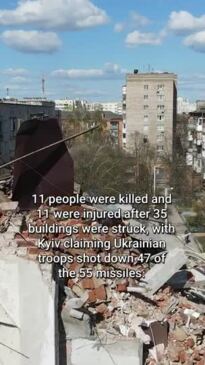
We have used our fighter jets in the Middle East and in patrols across Asia, and deployed our warships in the Persian Gulf and on freedom of navigation missions throughout the region. We have never even transported one of our tanks to a militarily contested area since the Vietnam War. We have not used them at all for more than 50 years. Donating them would save us billions of dollars we could spend on relevant military capabilities and enhance Ukraine’s fighting abilities.
And Ukraine’s success is of tremendous direct importance to Australia.
In Ukraine we have a free, sovereign and democratic nation willing to bear enormous costs for freedom. The Americans rightly grumble at freeloading allies who expect Americans to do their fighting. As Biden once said, the US can’t want Afghan freedom more than Afghans do.
In Ukraine, the US has an ally willing to do all its own fighting, all its own dying, rather than live as slaves. Russia’s Vladimir Putin does not believe Ukraine has the right to exist as an independent nation, even though Russia had given Ukraine security guarantees and as recently as a year ago Putin claimed he had no intention of invading.
If the West won’t supply material assistance and financial aid to an ally like Ukraine, it is no longer the West.
The idea, more popular now on the faux-realist isolationist right than anywhere else, that Western aid to Ukraine is provocative to Russia demonstrates how a stream of the “know-nothing” far right has become as unmoored and confused about fundamental questions of values, just as postmodern and detached from reality as the far left.
Conservatives used to label the left the “blame America first crowd”. This referred to a political pathology then exclusive to the left: the idea that America really controlled the whole world, its democracy was fake, it was no better than the dictatorships it opposed, its allies were puppets, all its institutions were corrupt and dishonest and it was responsible for all the ills, all the problems and injustices, of the world.
Thus it is a common refrain that the expansion of NATO into some East European nations which were formerly ruled by the Soviet Union – Poland, Hungary, the Czech Republic, Estonia, a few others – is the political and even moral cause of Putin’s aggression.
This is an idea so divorced from reality it calls to mind George Orwell’s insight: “One has to belong to the intelligentsia to believe things like that; no ordinary man could be such a fool.”
Putin has not attacked a single NATO member. NATO expansion has been an unqualified success.
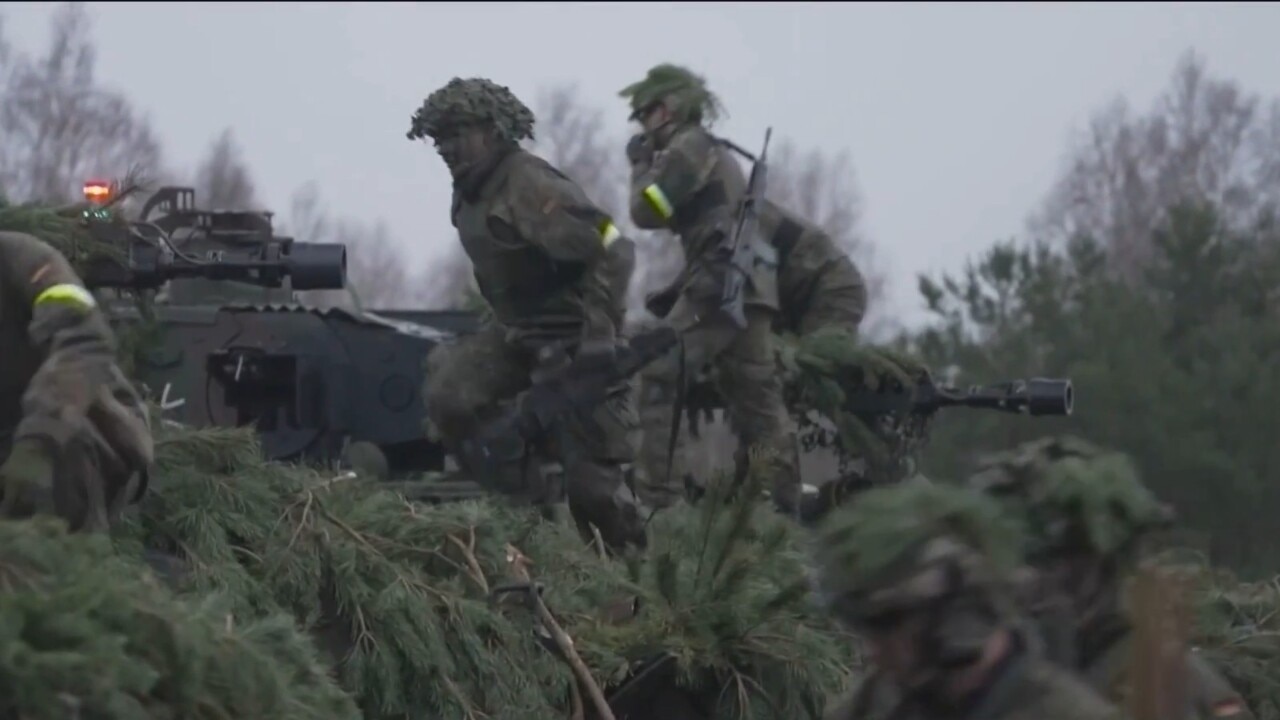
Putin’s mind and soul were formed in the KGB, where he was a successful career officer, and in the bloody politics of St Petersburg. At home, he has trashed democracy and instituted a vicious dictatorship. He and his cronies are fabulously wealthy while the Russian economy shrinks. He has shut down free media and imprisons anyone brave enough to oppose him politically, even those who only participate in demonstrations.
His regime assassinates dissidents abroad and he has grabbed territory not only from Ukraine, but from Georgia and Moldova. He has run savage military campaigns in Syria and Chechnya. His own writings show he is propelled ideologically by a version of the deepest, most paranoid Russian ultra-nationalism, the dream of a Russian-dominated Eurasian empire, with its mystical elements and long tradition of hatred of the West. This ideology finds its most complete expression in the works of Aleksandr Dugin.
The idea that all of this came about because Putin had a well-grounded fear of being invaded by coffee-loving Prague intellectuals, or the brave but tiny armed forces of Lithuania, is insane.
What seems to have happened to a small but significant minority on the far right is a form of cultural despair and domestic hyper-partisanism leading to irrational, often absurd and incoherent policy positions. Thus conservatives are deeply concerned, rightly in my view, at the direction of cultural change in the West. Western societies are losing existential purpose. They are drifting too far into atomised ennui and destructive identity politics. Some of their elites have come to hate all aspects of Western history, and the US and other Western societies are deeply polarised politically. This analysis recognises geostrategic threats from China and Islamist terror.
They then look out on the world and see Putin rejecting all aspects of woke ideology and rejecting gender ideology, but in fact rejecting human rights for gay people. They see him notionally supporting the Christian religion through the Russian Orthodox Church, which in truth he has traduced and subverted and robbed of religious integrity.
They ignore his hatred of the West and come to the bizarre conclusion that Putin is a natural ally.
The far right also embraces the left’s traditional postmodern contempt for democracy, arguing nonsense propositions that equate the US morally with China and Russia because, allegedly, all great powers want spheres of influence. So it’s hypocritical for the US to assist Ukraine in fighting for its independence. This debilitating, fraudulent moral equivalence was characteristic of the far left through the Cold War. Now you see it on the far right.
The Putin constituency in parts of the Western right once seemed as though it might be important. But the Ukraine war has blown it away. Putin won occasional favourable remarks from France’s Marine Le Pen, Italy’s Matteo Salvini and various fruitcake Republicans in the US.
But the striking thing about European politics is how strongly the pro-Ukraine position has held together. During the European summer, it was thought that the reality of a winter with much-reduced Russian energy supplies would cause a great falling away of support for solidarity with Ukraine. Instead, that solidarity, and the military and economic aid, has grown. Putin’s political efforts in the West after all have yielded him almost nothing in Ukraine.
The solidarity of Britain was to be expected and it was evident under Boris Johnson, Liz Truss and Rishi Sunak. The Brits are the most formidable Europeans militarily and strategically, and, as is customary, have led Europe on this geo-strategic issue. But they are outside of the European Union now.
How would EU nations respond? Scholz is a German Social Democrat and he is sending German tanks, though of course not German personnel, into a European war zone for the first time since World War II. His most important backer in government on this is his foreign minister, Annalena Baerbock, who is a Green. It’s a fair judgment that the German Greens are a different variety from the Australian Greens, who have never shown a single ounce of strategic awareness or responsibility.
Germany’s decision will unlock donations of tanks to Ukraine from a wide variety of European nations.
The Ukraine war, nearing its first anniversary, is almost certain to drag on for many months more. Ukraine is not remotely a perfect country or a perfect people. No one is. Just this week, its President, Volodymyr Zelensky, sacked 14 senior officials, including a number of deputy ministers, in an anti-corruption drive.
Zelensky’s personal heroism is undoubted. He could have had a safe and affluent life in the West. Instead, he decided to stay and fight. But holding Ukraine together militarily, socially, logistically, and maintaining its support and credibility among its international allies, is an immense task.
The Russians have committed shocking war crimes, bombing and murdering civilians. Ukraine is paying a fearsome price. It has about 700,000 personnel in uniform, with combat forces of more than 200,000.
It has out-thought and out-fought Putin’s forces. When early in the war Russian troops reached the outskirts of Kyiv, it looked as though Ukraine’s days of independence were ending. Now it seems that if they continue to get military and financial support, the Ukrainians are unlikely to be defeated.
But still, the cost is horrendous. Putin continues to hope that the cost eventually will become unbearable. The Ukrainians want the tanks in part to use in one or more (northern) spring offensives.
But Russia too is planning a spring offensive. The Russian military performance in Ukraine has been very poor, much worse than any mainstream analyst expected. But despite reports of ammunition and weapons shortages, of a lack of medical facilities and rudimentary training for many of its new conscripts, the Russian army looks as though it is not yet spent.
It is likely Ukraine may have suffered 80,000 soldiers killed and wounded. The Russian figure is certainly larger. Thousands, perhaps tens of thousands, of Ukrainian civilians have died. Russia, unlike Ukraine, is a dictatorship and Putin can bear his people going through a great deal of pain. Russia has lost more dead in Ukraine than it did in a failed decade in Afghanistan. But there are signs that under their new military commander, Valery Gerasimov, the Russians are becoming better organised, more effective, contriving to play more to their strengths. The Russians abandoned huge amounts of newly conquered territory when they were routed by the Ukrainians in a series of battles. But winter has allowed them to stabilise the front line and create much better-organised lines of reinforced defence. They are entrenched in newly fortified positions.
It is very costly in lives and materiel for an attacking force to take well fortified, well organised defensive positions.
And though they have thrown many untrained conscripts into war, the sheer size of Moscow’s mobilisation, formally of 300,000 but perhaps many more, means they can rotate troops in and out of the front line. If you give frontline soldiers regular periods of rest and recuperation away from the front, you can sustain them for months or even years.
In some ways, the Ukraine war has conformed to past Russian campaigns. It started disastrously for the Russians, and all the weaknesses of corruption, lack of initiative, appalling logistics, confusion at manoeuvre, were exposed. But then the Russians became less ambitious and tried to turn it into a long war of attrition. Their vastly superior numbers compared to Ukraine now have a chance to come into play. They now understand it’s a long war. They even seem to be on the brink of a new conquest in the southern city of Bakhmut. Putin still probably dreams that he can occupy all of eastern and southern Ukraine, though if he ever gets that far he may once more think he can rule all Ukraine.
Where will it end? Henry Kissinger has suggested an ultimate deal in which Russia keeps the territory it took 10 years ago, that is, Crimea and part of Donbas; Ukraine keeps all the rest and gets NATO membership. Any deal that does not give Ukraine NATO membership would see Ukraine relying only on Putin’s word, and that is clearly worthless.
Ukraine is not ready to concede any territory yet and Moscow is not ready to accept Ukraine in NATO. So that deal is not possible today, but Kissinger may well have forecast the ultimate outcome.
More broadly, what is the outcome for the West?
If Ukraine survives as an independent nation, if Germany makes good on its pledge to permanently increase defence spending to 2 per cent of GDP, if the US and Europe hold together in standing by Ukraine, then the West is immensely strengthened.
The US has three important international adversaries: China, Russia and Iran. The second most important of these, Russia, has been gravely damaged by its invasion attempt. Its military is degraded and three-quarters used up, its influence is vastly reduced, its energy dominance has declined, its hi-tech industries are in the process of being crippled.
Meanwhile, the West has demonstrated coherence and consequence. NATO’s strength is confirmed, and enhanced. Nothing is more truly provocative than weakness. The Russians were influenced to invade Ukraine by drawing the wrong lessons from the messy US withdrawal from Afghanistan. The world, perhaps even its own citizens, will have to rethink the narrative of terminal Western decline.
Nowhere will these lessons be more closely studied than in Beijing. Western success in Ukraine makes war in east Asia significantly less likely. Ukrainians are fighting, magnificently, for their own freedom and country. They are also fighting for the West.

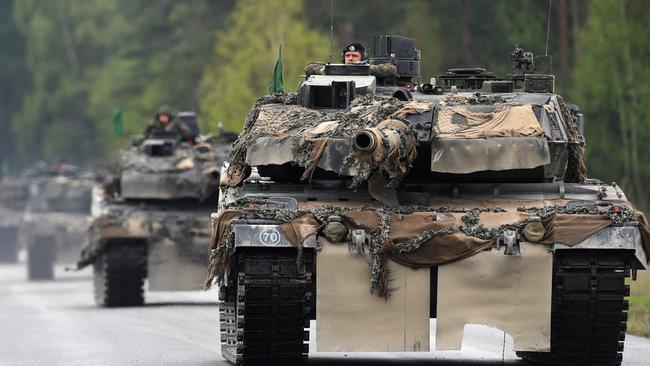

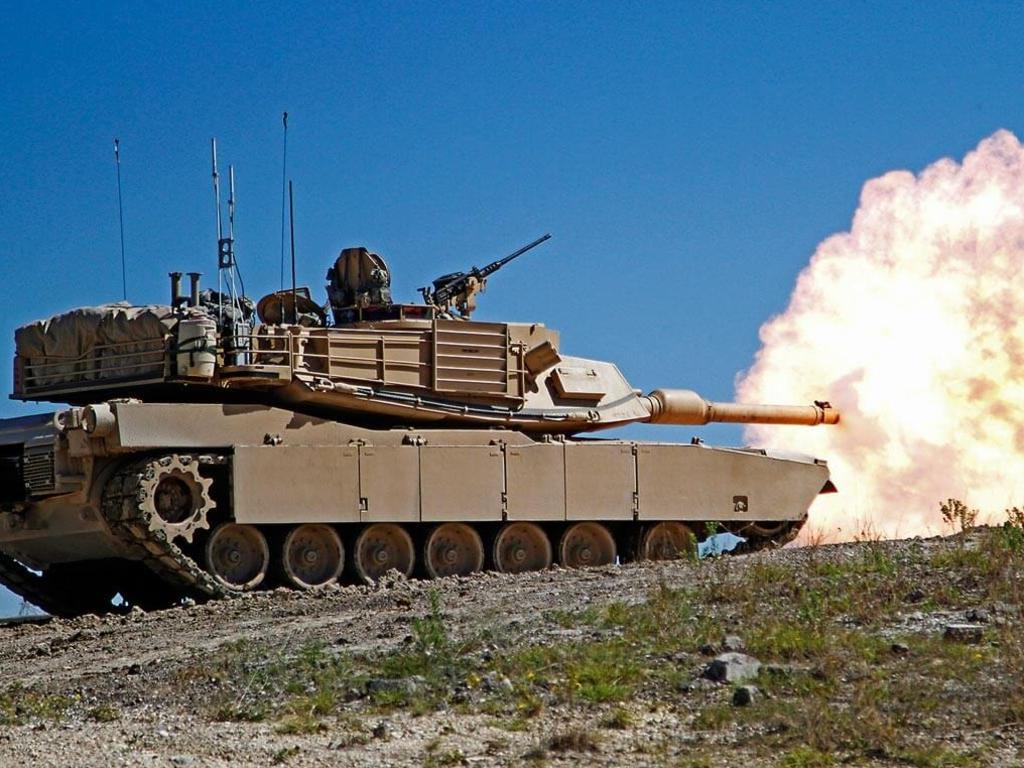
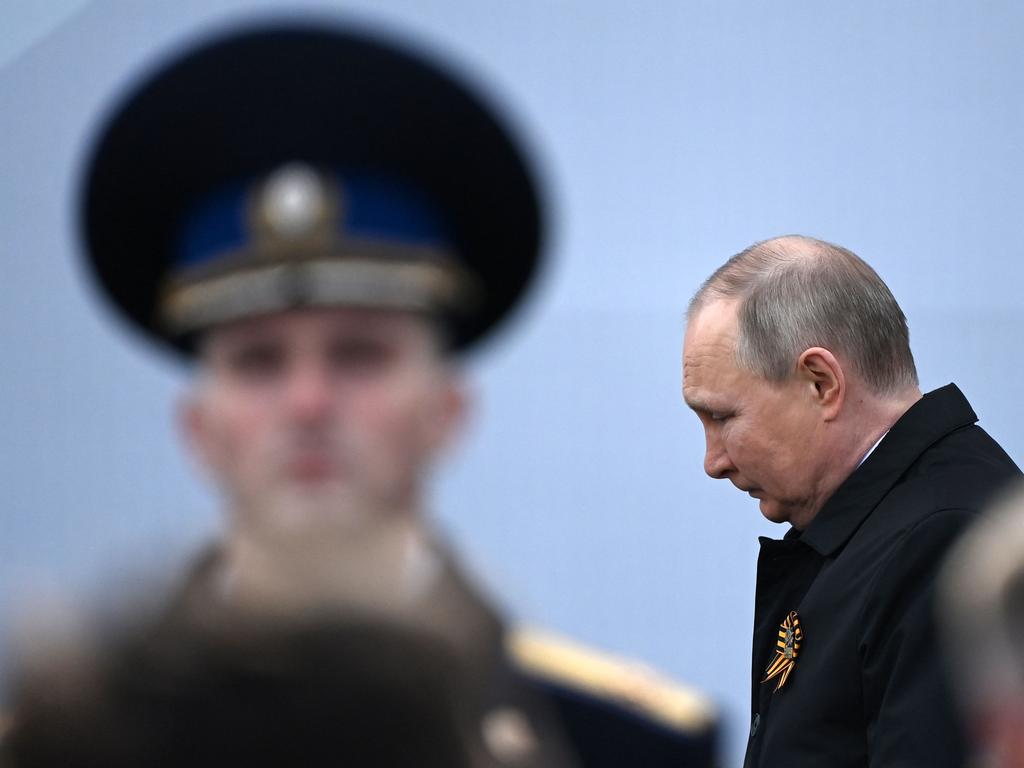


The decision by US President Joe Biden and German Chancellor Olaf Scholz to provide main battle tanks for Ukraine is a pivotal moment. The US is also sending Bradley Fighting Vehicles. It makes a Ukrainian victory more likely. That is crucially important not only for Ukraine, but for the West generally, and for every scrap of security and order provided by the US alliance system globally.